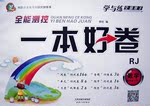题目内容
10.One day an ant was drinking at a small stream and fell in.She made desperate efforts(61)to reach(reach) the side,but made no progress at all.The poor (62)exhausted(exhaust) ant was still bravely doing her best when a dove saw her.Moved by her (63)determination(determine) and perseverance,the bird threw her a blade of grass,(64)whichsupported her like a raft,and thus the ant reached the bank again.While she was resting and drying (65)herself(she) in the grass,she (66)heard(hear) a man come near.He was walking along barefooted (67)witha gun in his hand.As soon as he saw the dove,he wished to kill it.He would certainly have done so,but the ant bit him in the foot just as he raised his gun to fire.He stopped to see (68)whathad bit him,and the dove (69)immediately(immediate) flew away.It was an animal much (70)weaker(weak) that had saved her life.
分析 本文讲述了一只蚂蚁在河边喝水时掉到了河里快要淹死了,一只路过的鸽子被蚂蚁的决心和毅力所感动,用一根草棒救起来蚂蚁.就在这时一位猎人举起来枪准备射杀鸽子时,蚂蚁上去咬了猎人的脚,救了鸽子.这篇文章告诉我们,每个人都有需要别人帮助的时候,所以我们也应该帮助别人.
解答 61.to reach;考查不定式,make efforts to do 是习惯用语,意为"努力做某事,千方百计作某事".
62.exhausted;考查形容词,这里用过去分词做形容词,意为"精疲力尽的,感到疲倦的",修饰后面的名词ant.
63.determination;考查名词,结合上下文,这里用名词形式 determination 和and后面的 perseverance构成并列成分.
64.which;考查关系代词,这是一个非限制性定语从句,关系代词which指代前面的 a blade of grass.
65.herself;考查反身代词,结合上下文语境,这句意思应该为"当它在草地上休息并要晾干自己的时候…",所以这里用 反身代词.
66.heard;考查时态,本文讲的已经发生的故事,所以用过去时.
67.with;考查介词,根据语境,这里用"with+宾语+宾补"的with复合结构作句子的状语.
68.what;考查代词的用法,这是一个宾语从句,从句缺少主语,空格处用what来作宾语从句的主语.
69.immediately;考查副词,这里用副词形式作状语,修饰后面的动词短语 flew away.
70.weaker;考查形容词的比较级,much后面跟形容词时要跟形容词的比较级形式.
点评 首先要通读全文,了解大意,抓住上下文语境所提供的信息,仔细分析带空格的句子,明确空格所要填的词义,词型和短语搭配给出所要填的正确形式,然后整体阅读短文,核对答案.

 全能测控一本好卷系列答案
全能测控一本好卷系列答案---You should _______ her to classical literary works.( )
| A. | devote | B. | apply | C. | expose | D. | recommend |
There are many good things about (53)A in the Third World.Take the close and constant relation between children and their parents,relatives and neighbours for example.In the West,the very nature of work puts distance between (54)A and children.But in most Third World villages mother and father do not go miles away each day to work in offices.(55)C,the child sees mother and father,relations and neighbours working (56)D and often shares in that work.
A child (57)A in this way learns his or her role through joining in the community's work:helping to dig or build,look after animals or babies---rather than through playing with water and sand in kindergarten,keeping pets (58)C playing with dolls.
These children may grow up with a less oppressive sense of space and time than the western
children.Their sense of days and time has a lot to do with the change of seasons and positions of
the sun or the moon in the sky.Children in the rich world,(59)C,are provided with a watch as one of the (60)Bsigns of growing up,so that they can(61)A along with their parents about being late for school times,meal times,bed times,the times of TV shows.
Third World children do not usually (62)C to stay indoors,still less in highrise apartments (公寓).Instead of dangerous roads,"keep off the grass"signs and"don't speak to strangers",there is often a sense of(63)D to study and play.Parents can see their children outside rather than observe them (64)Afrom ten floors up.
(65)C,twelve million children under five still die every year through hunger and disease.But childhood in the Third World is not all bad.
| 51.A.As usual | B.For instance | C.In fact | D.In other words |
| 52.A.by | B.in | C.to | D.under |
| 53.A.childhood | B.poverty | C.spirit | D.survival |
| 54.A.adults | B.fathers | C.neighbours | D.relatives |
| 55.A.Anyhow | B.However | C.Instead | D.Still |
| 56.A.away | B.alone | C.along | D.nearby |
| 57.A.growing up | B.living through | C.play ing | D.working |
| 58.A.and | B.but | C.or | D.so |
| 59.A.at any moment | B.at the same time | C.on the other hand | D.on the whole |
| 60.A.easiest | B.earliest | C.happiest | D.quickest |
| 61.A.care | B.fear | C.hurry | D.worry |
| 62.A.dare | B.expect | C.have | D.require |
| 63.A.control | B.danger | C.disappointment | D.freedom |
| 64.A.anxiously | B.eagerly | C.impatiently | D.proudly |
| 65.A.Above all | B.In the end | C.Of course | D.What's |
| A. | in which | B. | what | C. | when | D. | where |
